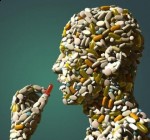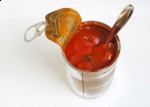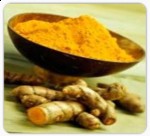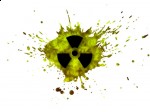You have the best pillows, mattress and sheets and yet still can’t sleep. You invest in a quiet room with the right temperature and room darkening shades. Still sleep alludes you. You investigate the sleep aids on the market, the choices are endless. melatonin, chamomile tea, prescription sleep aids, no luck. Why has something as natural as sleeping become so expensive and such hard work?
Are we the first generation to experience sleeplessness. or does mankind have a history of insomnia?
One Third of Our Lives are Spent in Bed
Sleep is vital to our health. It’s the time our body repairs and rejuvenates itself. Falling asleep or “crashing” at the end of a busy day is not the problem for many of us. It’s sustaining that sleep, getting a deep, restful sleep.
Tossing & Turning
More often than not, millions of us can’t stay asleep. Tossing and turning is old school. Today there is so much to entertain us through the wee hours of the morning We check emails on our phones, shop on line, watch movies, text our friends who are also not sleeping and hang out on facebook with other insomniacs. You’ve heard about relaxation techniques, stretching before bed and staying away from caffeine in the evening. Eight hours of straight sleep is still a pipe dream for so many.
Sleep in a Pill
The standard American indoctrination is better sleep through chemistry. The pharmaceuticals knock us out like a bulldozer. Even half a sleeping pill can often do the trick. Who cares if we sleep walk, eat or even have intercourse while we are drugged to sleep. We don’t need to remember, we slept and that’s all that really matters, isn’t it?
The history of insomnia may be able to teach us something. Knowing that history repeats itself I ask, what did our ancestors do when they couldn’t sleep? Certainly they had stressors that kept them awake at night. Whether it was staying safe from wild animals, worrying about the next harvest, taking care of their families or dealing with life threatening plagues, every generation of mankind has experienced sleepless nights. I’m certain our ancestors probably laid awake thinking and ruminating, playing the same type of scenarios in their minds that we do today. They, too, fell asleep the second their work day was over only to find at three o’clock they stared off into the night, wide awake but without wifi to entertain themselves.
Have we forgotten the drugs of today began as plants?
Our forefathers had their own version of pharmaceuticals. The all came from Mother Nature. For thousands of years all drugs came from plants, animals and minerals found in nature. It’s only been a snippet in time that pharmaceuticals, synthetic sleep aids in the form of bottles of chemicals have become mainstream. As history repeats itself, the knowledge of our ancestors is revisited. The ancients knew what plants could help the restless mind. A small seed called zizyphus jujube is one such sleep aid. Traditional Chinese Medicine has used this seed to calm the anxious mind and provide help with night sweats. Modern chemistry shows this tiny seed has natural sedative properties.
Maybe you are not familiar with this Chinese herb. Chinese medicine has NOT been the predominant form of medicine in the U.S. for the past 200 years but this does not negate the fact that over a billion people on the earth depend on this medicine and have for centuries. The hundreds of years of continual use of Chinese herbs as sleeping aids give it both a safety and success record unmatched by other sleep remedies.
Chinese herbal medicine perfected herbal formulas through thousands of years of use. The same formulas are still used today and they are still effective. Not as a single ingredient extract, because nature never intended for us to use just one small chemical in any plant. Plants are complicated and contain many chemicals. Removing one nutrient or chemical from a plant is not what nature intended. Our bodies recognize plant chemicals and have for millions of years, when we use them whole.
Chinese herbal medicine has a rich history throughout Asia and has been embraced in the 21st century by the governments of China, Taiwan, Japan and others. By “embraced” I mean these governments include Traditional Chinese herbs and herbal formulas in their national insurance coverage. Imagine, botanicals covered by insurance without receiving a patent. Now that’s a crazy thought. Yet it’s happening now for over a billion people on the planet.
Two caveats to keep in mind. I’m the first to admit that plenty of herbal products are not worth the bottle they are packaged in. So please, do your research on the manufacturer and only buy from those who test their herbs for contaminants. Stay clear of companies who are not transparent about who makes their products or where their raw ingredients are sourced. There are plenty of unscrupulous companies to choose from, remember “Buyer Beware”.
Choose products that do not contain synthetic chemicals. Science does not build a better mousetrap or sleep aid. Many of the supplements people are popping today are never fully used in the body and simply get excreted. Our bodies function best with whole foods and whole herbs containing all the phyto-nutrients are bodies have recognized for millions of years. Look for natural ingredients that contain plant names, not chemical derivatives synthetically made that our bodies won’t recognize.
Our ancestors found herbs to help them sleep and then perfected the use of mixing certain botanicals together. We don’t need to recreate the wheel now, we just need to know how to use it.
Million and millions of tons of zizphus jujube seed and other Chinese herbs are harvested and sold each year. Millions of people don’t use a pill in a bottle, they use botanical sleep aids. They use formulas of herbs from their grandparents, and great, great grandparents. Tried and true formulations passed down. It has been said, “It takes an endless amount of history to make even a little tradition.” – Henry James.










